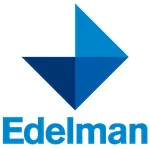 Richard Goldstein |
The Tax Cuts and Jobs Act made many changes to both individual and corporate taxes. One of these new changes is the IRC Section 199A deduction. This is a new section of the Internal Revenue Code that allows a 20 percent deduction for “qualified business income (QBI) for owners of pass-through entities, which include S corporations, limited liability entities, partnerships and sole proprietorships. Missing from this list is the “C” corporation.
This new deduction can be complicated even with recent IRS guidance. My purpose in authoring this column is not to provide guidance on how to calculate the deduction, but to make you, the reader, aware of the benefit that Congress has given to the business owner and the possibility of a PR agency to claim this deduction.
Who gets the deduction?
The deduction is for individuals, not business entities. All entities mentioned above are “flow-through” entities. That is, income and deductions pass through to the individual owners of the business.
The deduction applies to individuals with QBI from flow-through entities as previously stated. That means the deduction is for individuals not business entities (thus, C corporations don’t get the deduction). In general, a taxpayer can deduct 20 percent of the amount of QBI allocated to them from the entity, subject to certain limitations.
QBI is the net business income from a “qualified trade or business” (more on this to come) conducted in the United States. To qualify, the business must be other than a “specified service trade or business.” (SSTB.) In general, a SSTB includes all service business other than architecture and engineering. The tax law defines a SSTB as any trade or business involving the performance of services in the fields of health, law, accounting, actuarial science, performing arts, consulting, athletics, financial services, brokerage services or any trade or business where the principal asset of such trade or business is the reputation or skill of one or more of its employees or which involves the performance of services that consist of investing and investment management trading, or dealing in securities, partnership interests or commodities. A mouthful to say the least!
So, does a PR agency lose out based on the above definition? Is a PR agency a consulting firm or does it fall under the “reputation or skill” as defined above? At first blush, one might conclude that a PR agency is out of the box on this deduction unless a threshold amount is met.
The threshold amount
Business owners whose taxable income for 2019 is less than a threshold amount of $321,400 for those filing married filing jointly, $160,725 for married filing separately, and $160,700 for single and head of household will not be subject to the SSTB rules. There is a phase in rule for those taxpayers whose taxable income exceed the above amounts. (The deduction is also available for 2018.)
Where do we stand?
So, is a PR agency a SSTB? It may be easy to conclude that a PR agency is a SSTB under the “consulting” or “skill” definition. According to a definition I found on the Internet, “a PR firm is a professional service organization, generally hired to conceive, produce and manage un-paid messages to the public through media on behalf of a client, with the intention of changing the public’s actions by influencing their opinion.”
Under proposed regulations involving the reputation or skill as discussed above, the following is added … ‘in which the person receives fees, compensation or other income for endorsing products or services, licenses or receives fees for the use of an individual’s image, likeness, name, signature, voice, trademark or any other symbols associated with the individual’s identity or for appearing at an event or on radio television or other media.” Well, this does not seem to fit the definition provided above and PR seems to pass this test. (See caveat below.)
The next problem area is “consulting.” Consulting is defined in the proposed regulations as “provision of professional advice and counsel to clients to assist the clients in achieving goals and solving problems. The proposed regulations also indicate that consulting “includes providing advice and counsel regarding advocacy with the intention of influencing decisions made by a government or governmental agency and all attempts to influencing legislator and other similar professionals performing services in their capacity as such.” So, it seems to me that a PR agency could have a hard time arguing that it doesn’t provide consulting services.
The De Minimis exception
This exception provides that a trade or business is not an SSTB if the business has gross receipts in any tax year of $25 million or less and less than 10 percent of the gross receipts of the business is attributable to the performance of services. This will be a difficult argument in my view for a PR agency to overcome.
If you read the definition of a public relations firm in the “Agency Name finder,” (not provided here due to space limitations), you may be able to make an argument that PR is not a SSTB. (Please let me know your thoughts on this.)
This column isn’t intended to provide legal, accounting or tax advice. You need to seek the advice of your own CPA and/or attorney on the best course of action to take. Nevertheless, even if your agency would be considered an SSTB, you should be able to claim the deduction based on the taxable income thresholds as discussed above. If not and the deduction is claimed, a disclosure statement attached to the tax return could avoid certain penalties. This may consist of a disclosure statement, Form 8275, attached to your tax return to avoid penalties if audited by the IRS or even seeking a revenue ruling from the IRS. I will keep you informed on this issue as I see it developing.
***
Richard Goldstein is a partner at Buchbinder Tunick & Company LLP, New York, Certified Public Accountants.


 Public Policy Holding Company registered 24.1 percent growth to a record $135M during the past year, which included the results of the March 1 acquisition of Multistate Assocs.
Public Policy Holding Company registered 24.1 percent growth to a record $135M during the past year, which included the results of the March 1 acquisition of Multistate Assocs. Stagwell CEO Mark Penn reported Q4 net revenues dipped 5.6 percent to $551.1M during a “challenging year for marketing services and digital transformation.”
Stagwell CEO Mark Penn reported Q4 net revenues dipped 5.6 percent to $551.1M during a “challenging year for marketing services and digital transformation.” Why M&A activity in the PR and marketing sector could pick up in 2024.
Why M&A activity in the PR and marketing sector could pick up in 2024. WPP reported Q4 revenues inched ahead 0.3 percent to $4.1B as CEO Mark Read wrapped up a year that he said was more challenging than expected due to cutbacks, mainly by technology clients.
WPP reported Q4 revenues inched ahead 0.3 percent to $4.1B as CEO Mark Read wrapped up a year that he said was more challenging than expected due to cutbacks, mainly by technology clients. Edelman reports 2023 revenues declined 3.7 percent to $1.04B as its flagship US region was off 9.1 percent to $639M.
Edelman reports 2023 revenues declined 3.7 percent to $1.04B as its flagship US region was off 9.1 percent to $639M.


 Have a comment? Send it to
Have a comment? Send it to 
No comments have been submitted for this story yet.